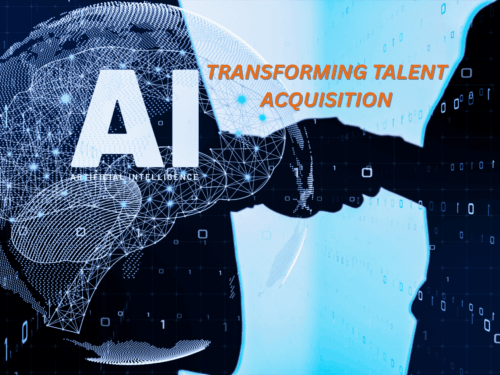Artificial intelligence is transforming the political landscape, driving more sophisticated campaigns and enhancing election security. With the capabilities of AI-driven data analytics, political teams can now sift through massive datasets to identify trends, understand voter behavior, and create targeted messaging that truly resonates with voters. This ability to adapt in real-time ensures that campaigns remain relevant and impactful, tailoring their approaches to the ever-changing political environment.
Beyond shaping campaign strategies, AI also plays a crucial role in safeguarding election integrity. By detecting anomalies in voter data and identifying potential fraud, AI helps maintain the transparency and security of the electoral process. As concerns about election security and transparency continue to grow, AI becomes an indispensable tool in protecting the democratic process and ensuring fair and credible elections.
AI-Enhanced Voter Behavior Insights: Data-Driven Political Decisions
Imagine a world where political messages seem to speak directly to interests and concerns—that’s the transformative power of AI-driven analytics in action. Voters are experiencing a new level of engagement and relevance in political content, thanks to advanced AI tools like Crimson Hexagon and PoliMonitor that analyze vast datasets, including voting history, social media activity, and demographic information. These AI systems offer campaigns deep insights into voter preferences, enabling them to craft highly personalized messages that resonate on an individual level.
This tailored approach means that voters receive content that truly addresses their specific needs and concerns, rather than generic, one-size-fits-all messaging. Additionally, AI’s ability to predict and track changes in voter sentiment in real-time allows campaigns to adjust their strategies dynamically. This responsiveness ensures that political communication remains timely and effective, adapting to shifting attitudes and emerging issues. As AI technology continues to advance, its impact on political messaging is set to deepen, making interactions with campaigns more relevant and engaging, and ensuring that voters are better informed and more connected to the issues that matter most to them.
Detecting and Preventing Election Fraud with AI Algorithms
AI algorithms are revolutionizing the way election fraud is detected, ensuring greater transparency in democratic processes. By analyzing large datasets, AI can swiftly identify irregularities such as duplicate registrations and unusual voting patterns, significantly reducing the potential for human error. Governments are increasingly adopting these technologies to safeguard election integrity, making AI an essential tool in fraud prevention.
Moreover, AI goes beyond mere detection by utilizing predictive analytics to anticipate potential risks and monitoring social media to combat misinformation. As elections become more digitized, AI’s role in maintaining security and fairness is becoming increasingly critical. This underscores the importance of AI for government agencies tasked with election security, as it helps protect against cyber threats and ensures the integrity of election data and processes.
Predictive Analytics: Shaping Campaign Strategies and Election Outcomes
Predictive analytics is transforming campaign strategies and election outcomes by harnessing AI to analyze voter data and trends. By examining information from social media, voting history, and demographics, AI enables campaigns to forecast voter behavior with remarkable accuracy. This capability allows political teams to craft highly targeted messages and strategies tailored to specific voter segments, optimizing their outreach and engagement efforts.
Additionally, AI-powered predictive analytics enhances campaign efficiency by facilitating real-time adjustments. It helps campaigns anticipate shifts in voter sentiment and opponent strategies, enabling better resource allocation and more effective voter engagement. As AI technology continues to advance, its influence on shaping election strategies and outcomes is expected to grow, offering deeper insights and more precise tools for both political analysts and campaign teams.
Social Media Sentiment Analysis: AI’s Role in Political Messaging
AI-driven social media sentiment analysis is transforming political analysis by offering deep insights into voter behavior and election trends. For political analysts, AI tools provide real-time data on public sentiment, enabling more accurate predictions and strategic advice. This enhanced analysis helps campaigns refine their messaging and engage more effectively with voters.
For voters, AI ensures that political content is relevant and engaging, improving the quality of information and interaction. Additionally, government agencies use AI to protect election integrity and combat cyber threats, making elections more secure. As AI technology advances, its impact on political messaging and election security continues to grow.
AI in Election Auditing: Enhancing Transparency and Security
AI in Election Auditing is revolutionizing the way election committees ensure transparency and security. By utilizing advanced AI tools, these committees can efficiently monitor and audit election processes, quickly identifying irregularities and potential fraud. This technology enhances transparency by detecting discrepancies and maintaining trust in the electoral system.
Political analysts also gain from AI, using it to delve deeper into voter behavior, election trends, and public sentiment. AI provides critical insights that improve predictions and strategic advice, leading to more informed and effective election strategies. As AI continues to advance, its impact on both auditing and analyzing elections is becoming increasingly vital for ensuring a secure and transparent democratic process.
Ethical Challenges and the Future of AI in Politics and Election Security
As AI advances in politics and election security, it presents both significant benefits and ethical dilemmas. While AI enhances voter targeting, sentiment analysis, and election integrity, it also raises concerns about privacy, data manipulation, and misuse. These issues underscore the need for strict ethical guidelines to protect voter information and ensure fair practices.
The future of AI in politics will depend on addressing these ethical challenges while leveraging its potential. Ensuring transparency, data protection, and clear regulations will be key to maintaining trust and fairness in elections. Balancing innovation with ethical considerations is essential for upholding democratic values as AI technologies continue to evolve.






